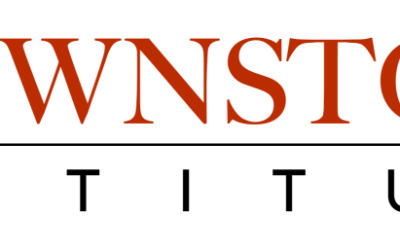Republished from the West Island Gazette.
So, how free do you think you are? To be honest, I’ve been feeling pretty free, as freedom goes, over the last bit of time. My kids are almost out of the basement and in interesting jobs. I can almost stop worrying about them.
Unless the young family doctor we recently lucked into is kidding me, I’m in reasonable health. That frees me up from a lot of medical appointments, which is what my age group talks about most of the time, that and downsizing, care homes and dying. And I’m not working any more. Not racing to get to CEGEP English class on time, a skill I never really mastered. No matter how close to the campus I lived, I was always tactically late. At least that was my excuse.
Imagine: no longer responsible for that small part that is English in the education of 250 CEGEP students every year, young people who got younger with every passing year. And some of my first groups of John Abbott students are now in their 60s.
And, even more liberating, I’m no longer your small-town mayor listening empathetically to the irritating details of civic life (the raccoon in the pool, the garbage missed one morning, a noisy neighbour, a barking dog on the boardwalk, a town employee on sick leave videotaped cutting down trees for a neighbour, a pile of ice dumped on your driveway. The list is long.
No demerger campaign to run, no electoral lists to comb through and purge, no door-to-door efforts, no agglomeration meetings to go to watching hundreds of millions of dollars being spent on Montreal projects that are now emergencies because of past neglect.
Free. Harley-Davidson free, feeling like Jack Nicholson in Easy Rider. The open road. How much freedom can someone stand? And then just as we’re feeling the sun on our backs and the wind in our hair, Canada’s first “Freedom Index” (www.freedom-index. org) shows up in the Inbox. And this Freedom Index tells me that the two provinces in Canada where I spend most of my time, Nova Scotia and Quebec, are the least “free” among the Canadian provinces. On the Freedom index, they are numbers 9 and 10.
Alberta is the most “free” province and Quebec is the least “free.” Not halfway down the list: Quebec is bottom. Compared with Alberta, we in Quebec are in chains. Nova Scotians aren’t far behind.
So, how free do you feel now? My first instinct was denial: this Freedom Index is the work of the Frontier Centre for Public Policy, which doesn’t exactly sound like a group allied to the New Democratic Party. The Frontier Centre would probably also be suspicious of the federal Liberals with the Trudeau tendency to regulate. This organization is probably a cousin to American Republicanism with roots in Libertarianism. Ultimately, it is utopian: a perfect world would be a world without government.
Which is why it’s worth taking a look at.
Looking over the categories assessed by the analysis, it all seems perfectly reasonable. And the index will no doubt confirm the boxed-in feelings of Quebec people scarred by negative language policing, Charter of Values debates, people who wonder why they have to pay school taxes when their kids aren’t at school, people who feel that the governments of Quebec and even their town governments tax them too much and don’t represent them enough. People who generally don’t like government.
The notion of government behind the Freedom Index is made clear in this statement by the Frontier Centre for Public Policy: “While some level of government is required to protect people and property and to provide a social safety net, the Freedom Index is designed to show the degree to which each provincial government is involved in people’s day-to-day lives, over and above these core functions.”
The index “attempts to assess a large number of laws and measures, across fiscal, regulatory and personal freedom, in an attempt to measure how free each province is relative to the rest of the country.”
That’s the key idea: that government has “core functions” that are standard and acceptable and all the rest is interference in the functioning of individual liberty. “Some level of government is required” – meaning some minimum type of government is absolutely unavoidable even though in a better world, peopled by better people, it could probably be dispensed with.
And you have to admit that there are days when you’d like to get government right out of your life altogether.
Bill Tierney is a former mayor of Ste-Anne-de-Bellevue and a retired John Abbott College professor. billtierney@videotron.ca.


